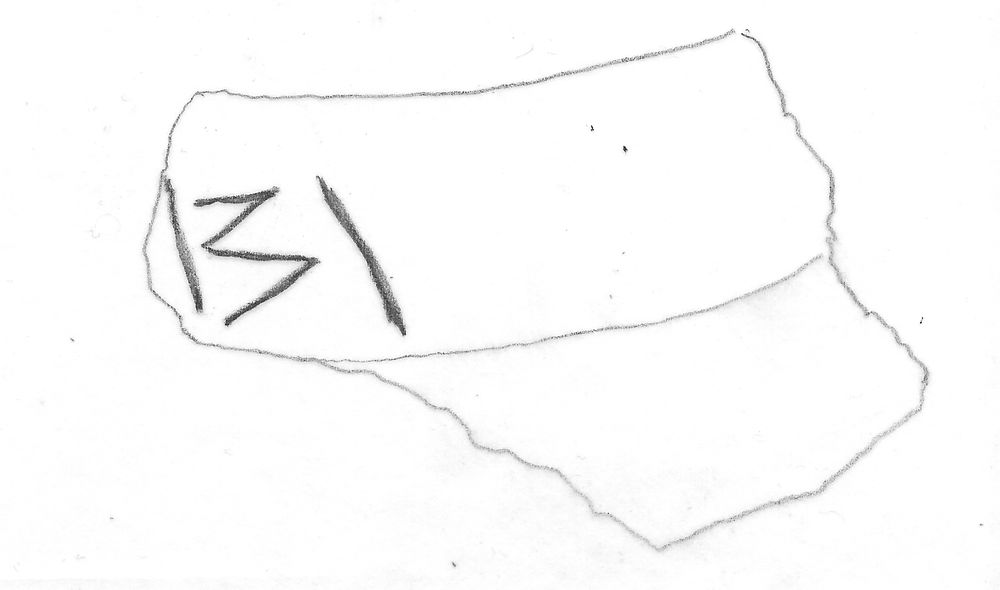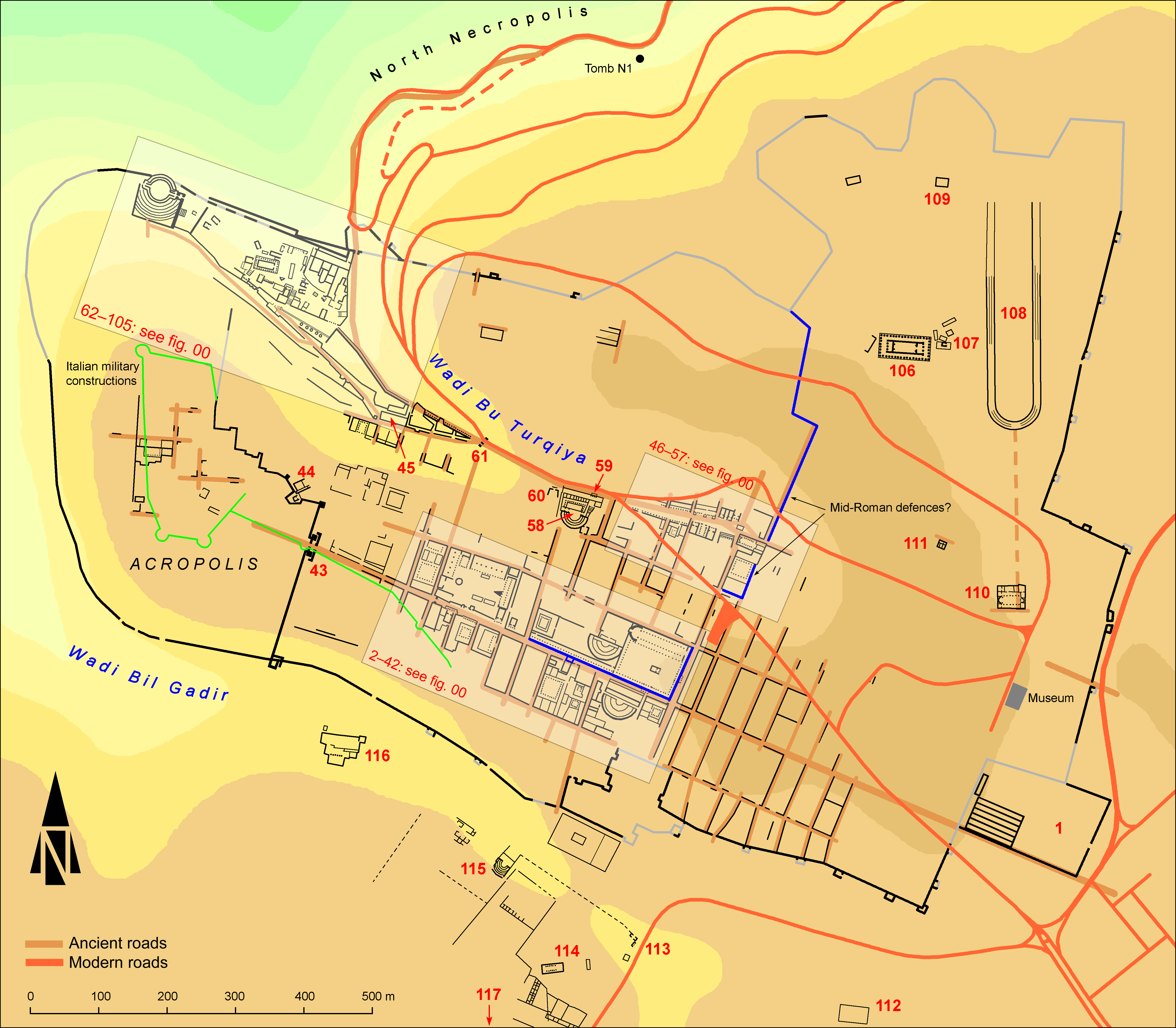EpiDoc XML:
IGCyr0895002
Trismegistos ID:
738441
Source description
Support: Fragment of a plain small jug ('olletta') of local ware (w: 0.065 × h: 0.036 × d: 0.01; diameter c. 0.12).
Layout: Incised sinistrorsum before firing, on the lid and belly
Letters: 0.013-0.016; straight iota, four-strikes sigma
Date: Fifth century BC (lettering).
Findspot: Found in 1993 by L. Bacchielli at Cyrene ➚: cave of the Nymphs.
Place of origin: Findspot.
Last recorded location: Cyrene Museum, Storeroom of the Italian missions, SN.93.7. Observed in 1993 by A. Santucci at Shahat: Storeroom of the Italian missions. Not seen by IGCyr team.
Text constituted from: Transcription from editors.
Bibliography
Lazari and Santucci in Gill – Santucci – Uhlenbrock 2000, pp. 182-183, n. 930 (dr.), and Dobias-Lalou, BE, 2001.562, whence SEG, 50.1642; IGCyr 089500 ➚.
Text
Apparatus
1: ισΙ̣: [---]ISI Gill – Santucci – Uhlenbrock 2000 sic: see commentary
French translation
Intraduisible.
English translation
Not usefully translatable.
Italian translation
Intraducibile.
Arabic translation
غير قابل للترجمة بشكل جيد.
Commentary
The first edition of this sherd was based upon the unpublished thesis of Carla Lazari (University of Padova, 1952-1953), completed by Anna Santucci, who updated the bibliography and commentary about the script. Unfortunately, the references given to a so-called 'three-strokes sigma' are out of place, as the compared items are all three-strokes iotas, but for one vase-inscription painted in Attica. This isolated piece of local ware is probably difficult to date and it seems that the date (VI century) given in the publication is only based upon the script.
In fact, the photograph shows clearly a four-strokes sigma, which also indicates the retrograd direction of the inscription. The third letter might be either iota or part of a mu. The straight iota and the use of sigma forbid to date the script before ca. 600.
Moreover, a tentative restoration [Νυμφα]ῖσι, proposed by Micheli and Santucci in Gill – Santucci – Uhlenbrock 2000, p. 128 is impossible on behalf of the dialect. Beginning with Ἰσμ- we know only of mythical or geographical names, which might produce a personal name. If Ισι- should be read, an interpretation seems even more obscure. Non liquet.
CC BY-NC-SA 4.0 Deed Attribution-NonCommercial-ShareAlike 4.0 International License.
All citation, reuse or distribution of this work must contain a link back to DOI: https://doi.org/10.60760/unibo/igcyrgvcyr2 and the filename (IGCyr000000 or GVCyr000), as well as the year of consultation.

